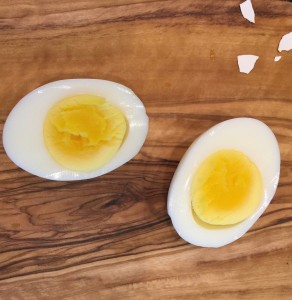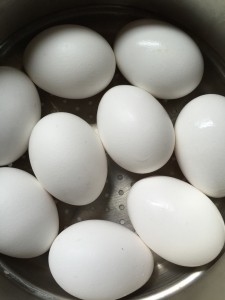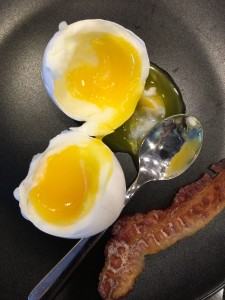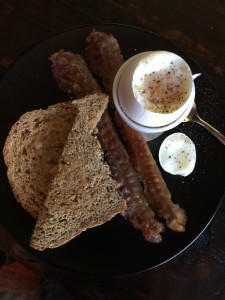Perfect Hard, or Soft, Boiled Eggs
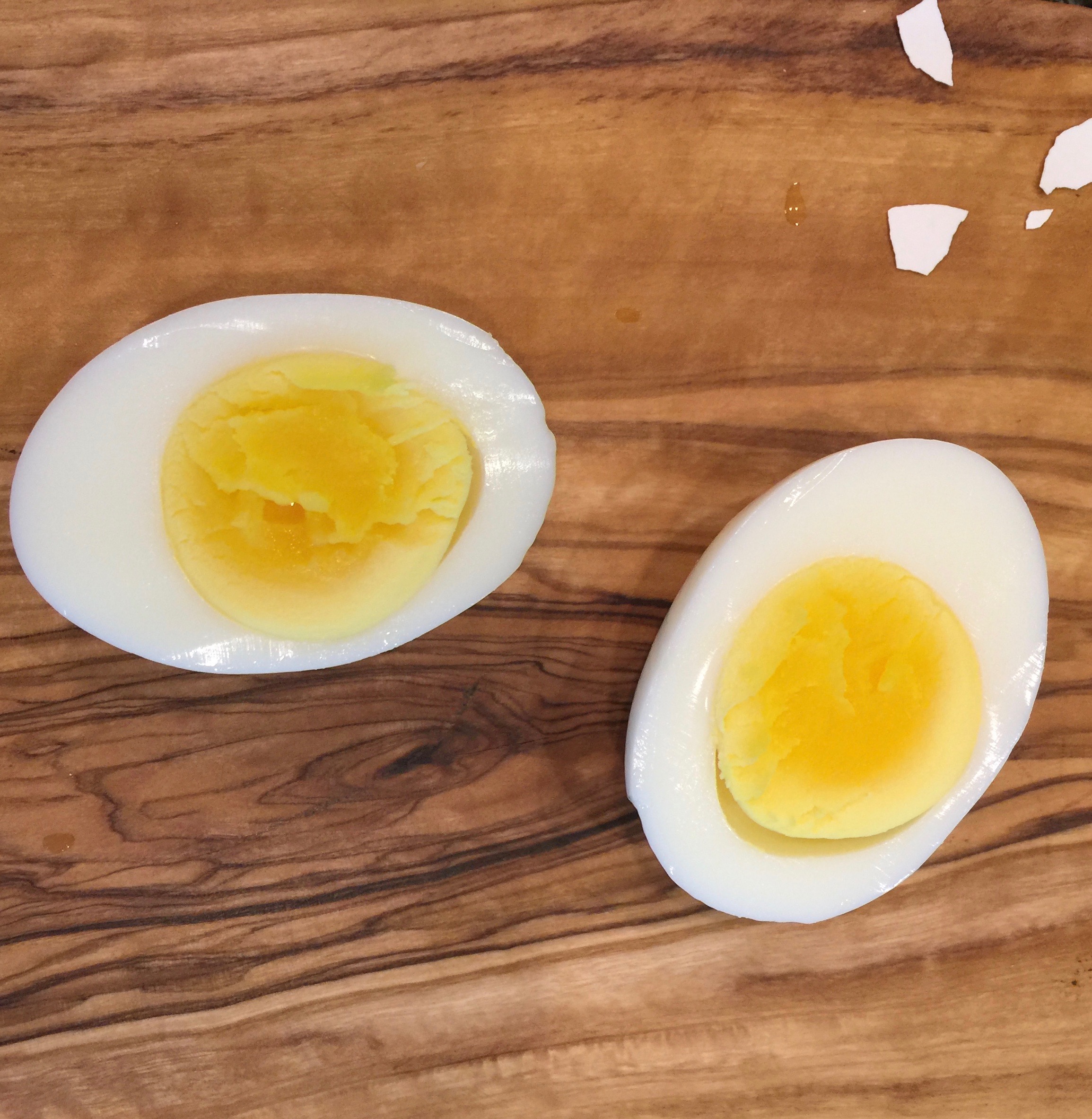
Easter is right around the corner. How are you doing with those hard boiled eggs? Still getting that dreaded green ring, or struggling to get the shells off neatly? Well, fear no more. I am reposting this easy way to get perfect hard, or soft, boiled eggs every time. Yes, there is a better way, and this is it. Did I mention that it won’t make your house and fridge stink?
Want to give it a practice run? Get a few eggs. Make some of them soft boiled for breakfast (6 minutes), and let the others cook until they’re hard boiled (11 minutes). Enjoy your breakfast, and once the other eggs are cooled, dry them and store in a ziptop bag in the fridge. Put a folded paper towel in with the eggs to provide some cushioning. Now you have some hard boiled eggs ready to go. Storing them this way won’t stink your fridge up, and you’ll always know which ones are hard boiled.
Here is the original post. Read on…
Don’t just glance at this and stop reading! This is something you need to know and you’re going to need it again and again. Want to know how to produce perfectly boiled eggs with clean-peeling shells? No more of those eggs that have that dreaded green ring, and no more messy peeled eggs. Now sit up and pay attention.
I have made my share of disappointing, epic fail eggs. I have made soft cooked eggs with yolks that were too runny, and also I have ended up with ones that are too hard. There have been dozens of eggs that were hard cooked and refused to peel, and despite heeding the advice about rapidly plunging those eggs into ice water, I have had my share of the dreaded green ring. Not anymore. This technique will come in handy for the rest of your cooking life. You will use it for Easter eggs, hard and soft cooked eggs, and every time you want to make deviled eggs (Memorial Day, Fourth of July, Labor Day, New Year’s Eve, picnics, and just a few sporting events along the way…) Not only does it produce perfect hard cooked eggs, but perfect soft cooked, as well. Now you will not be forced to make egg salad just because you have hard to peel, not-so-neat looking, messy eggs.
This is a great way to use up eggs that may be past their expiration date, which incidentally, you do not need to be too concerned about anyway. Just do a quick float test by putting your egg into a glass of cold water. If it sinks, you’re good. If it floats, toss it.
If you are not already sold, here comes the kicker: this method produces no odor. You can boil eggs and not stink up your entire house.
I first tried this before the Fourth of July. Eager to make a nice batch of deviled eggs and not wanting to have a huge mess, I turned to The Food Lab – Serious Eats. If you have never visited this site, be sure to take a minute and check it out. It is all about using science for better results when cooking. J. Kenji López-Alt is a genius, and I know I am not alone in believing this. His giant tome, The Food Lab, was released last year and I have to admit to more than a little excitement when I found it under the Christmas tree. (Thanks, Santa.)
Ready to make some perfectly cooked, beautiful eggs? The trick is to steam them. Here’s how.
Fill the bottom section of a covered pot with a steamer insert with approximately 2 inches of water. Set insert aside and bring water in bottom section to a boil. Place cold eggs into the steamer insert, set over boiling water and cover. Cook eggs for 11 minutes for hard cooked or 6 minutes for soft. Serve, if for soft cooked, or transfer immediately into a bowl of ice water. Chill at least 15 minutes, or for best peeling results, overnight in the fridge. Peel under cool running water.
Make some this weekend. You can feed your family soft-cooked eggs for breakfast, and make some hard cooked eggs to keep on hand for later at the same time. And you can get your practice on for that batch of deviled eggs you will inevitably want to make for Labor Day weekend.
Fear no more. Just try it. You will get consistently perfect eggs with hardly any effort at all. If you can’t refrigerate overnight, don’t let that stop you. The egg in the top photo was steamed, ice water chilled for about 25 minutes, and then peeled. Perfect!

